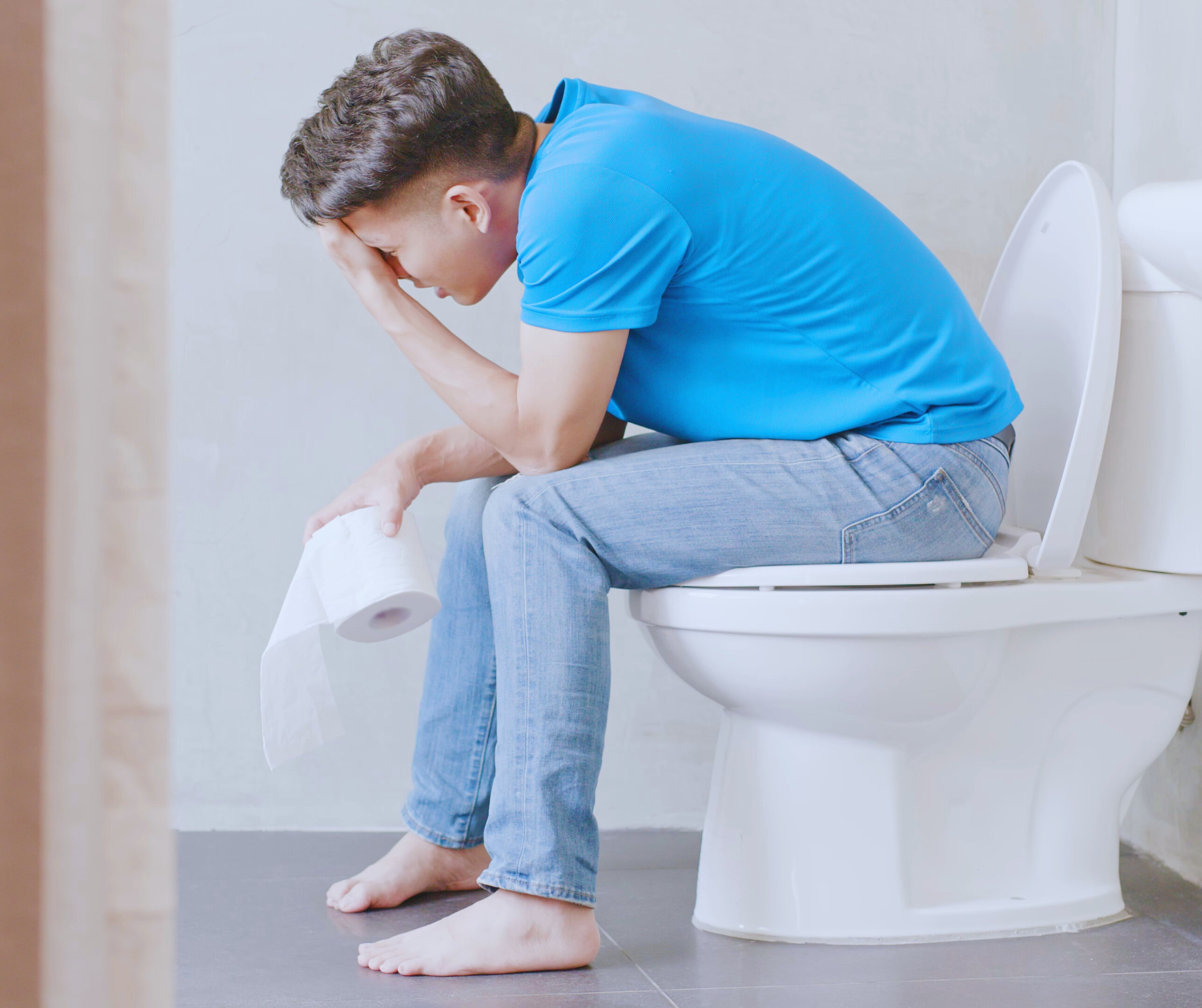Constipation

Understanding Constipation: Causes, Symptoms, and Treatments
Introduction
Constipation is a common digestive issue characterized by infrequent bowel movements or difficulty passing stool. It can affect people of all ages and is often caused by dietary habits, lifestyle factors, or underlying medical conditions. Understanding the causes and finding effective treatments is essential to maintaining digestive health and preventing complications.
Causes of Constipation
- Dietary Factors:
- Low Fiber Intake: A diet low in fiber, found in fruits, vegetables, and whole grains, can lead to constipation.
- Dehydration: Not drinking enough water can cause hard, dry stools that are difficult to pass.
- High Dairy Consumption: Eating too much cheese, milk, or other dairy products can contribute to constipation.
- Processed Foods: Diets high in processed foods, which are often low in fiber, can lead to constipation.
- Lifestyle Factors:
- Sedentary Lifestyle: Lack of physical activity can slow down the digestive system, leading to constipation.
- Ignoring the Urge to Go: Delaying bowel movements can lead to harder stools and more difficult passage later.
- Travel: Changes in routine, diet, and bathroom access during travel can disrupt regular bowel movements.
- Medical Conditions:
- Irritable Bowel Syndrome (IBS): IBS can cause alternating bouts of constipation and diarrhea.
- Hypothyroidism: An underactive thyroid can slow metabolism, leading to constipation.
- Diabetes: Nerve damage caused by diabetes can affect the muscles in the intestines, leading to constipation.
- Pregnancy: Hormonal changes during pregnancy can slow digestion, leading to constipation.
- Medications:
- Pain Relievers: Opioids and certain other pain medications can slow down bowel movements.
- Antidepressants: Some antidepressants can cause constipation as a side effect.
- Antacids: Antacids containing calcium or aluminum can lead to constipation.
- Psychological Factors:
- Stress and Anxiety: High levels of stress or anxiety can affect digestion and lead to constipation.
Symptoms of Constipation
- Infrequent Bowel Movements: Fewer than three bowel movements per week.
- Hard or Lumpy Stools: Stools that are dry, hard, or difficult to pass.
- Straining: Difficulty or pain while trying to pass stools.
- Feeling of Incomplete Evacuation: A sensation of not fully emptying the bowels.
- Abdominal Discomfort: Bloating, cramping, or pain in the abdomen.
- Rectal Pain: Discomfort or pain in the rectum during or after bowel movements.
Home Remedies for Constipation
- Increase Fiber Intake:
- Fiber-Rich Foods: Incorporate more fruits, vegetables, whole grains, and legumes into your diet.
- Psyllium Husk: A natural fiber supplement that can help soften stools and promote regularity.
- Stay Hydrated:
- Water: Drink plenty of water throughout the day to keep stools soft and easy to pass.
- Warm Liquids: Drinking warm water or herbal teas can stimulate digestion.
- Exercise Regularly:
- Physical Activity: Regular exercise, such as walking, swimming, or yoga, can help stimulate bowel movements.
- Establish a Routine:
- Scheduled Bathroom Time: Try to have a regular time each day to sit on the toilet, preferably after meals, to encourage bowel movements.
- Don’t Ignore the Urge: Responding to the natural urge to go to the bathroom can prevent constipation.
- Prunes and Other Natural Laxatives:
- Prunes: Eating prunes or drinking prune juice is a well-known remedy for constipation.
- Aloe Vera Juice: Aloe vera can act as a mild laxative to help with bowel movements.
- Probiotics:
- Yogurt and Fermented Foods: Incorporate probiotics into your diet to support healthy gut bacteria and improve digestion.
Clinical Treatments for Constipation
- Over-the-Counter Laxatives:
- Bulk-Forming Laxatives: Supplements like psyllium (Metamucil) can help increase stool bulk and promote bowel movements.
- Osmotic Laxatives: These draw water into the intestines to soften stools (e.g., polyethylene glycol, magnesium hydroxide).
- Stimulant Laxatives: These stimulate the bowel muscles to promote a bowel movement (e.g., bisacodyl, senna).
- Stool Softeners: Medications like docusate sodium can make stools easier to pass by increasing water content.
- Prescription Medications:
- Lubiprostone: A prescription medication that increases fluid in the intestines to help with bowel movements.
- Linaclotide: Another medication that helps increase bowel movements by drawing water into the intestines.
- Prucalopride: A medication that stimulates bowel movements by increasing the activity of the muscles in the intestines.
- Biofeedback Therapy:
- Pelvic Floor Dysfunction: For those with constipation due to pelvic floor dysfunction, biofeedback therapy can help retrain the muscles to improve bowel movements.
- Surgery:
- Severe Cases: In rare, severe cases where constipation is caused by a structural issue in the intestines, surgery may be necessary.
Alternative/Non-Invasive Treatments for Constipation
For constipation, the therapies offered by Earl Claytont Wellness Centre that may help relieve symptoms and support digestive health are:
- Vitamin B Complex:
- B vitamins, particularly B1 (thiamine), B3 (niacin), and B9 (folate), play a role in digestive health and can help support regular bowel movements. A B Complex supplement may assist in improving overall digestion and reducing constipation.
- PEMF (Pulsed Electromagnetic Field Therapy):
- PEMF therapy can help improve circulation and stimulate the muscles and nerves involved in digestion, which may promote regular bowel movements and alleviate constipation.
- Full Spectrum Infrared Sauna:
- Infrared saunas promote relaxation and improve circulation, which can help relieve stress-related constipation by relaxing the muscles and promoting better digestive function.
These therapies are likely to be effective in managing constipation by supporting digestive health, improving circulation, and promoting relaxation. However, addressing dietary and lifestyle factors is also crucial for long-term relief from constipation.
Discover the perfect treatment for you with a FREE MEDICAL ASSESSMENT! Limited slots available – secure yours now by scheduling an appointment. Click below to book now!
When to Seek Medical Attention
- If constipation is severe, lasts more than three weeks, or is accompanied by symptoms like severe abdominal pain, blood in the stool, or unexplained weight loss, it’s important to seek medical advice. These could be signs of a more serious underlying condition.
Conclusion
Constipation is a common but manageable condition. By understanding its causes and implementing effective home remedies and clinical treatments, individuals can alleviate symptoms and maintain regular bowel movements. If constipation persists or is accompanied by other concerning symptoms, seeking medical attention is essential for identifying and treating any underlying issues.

